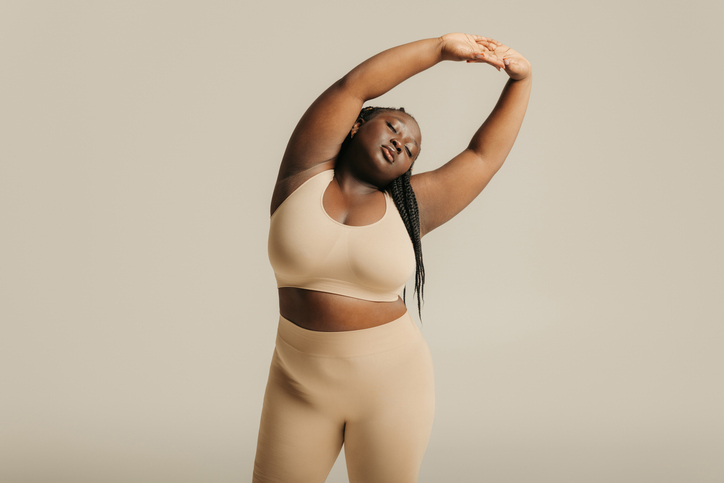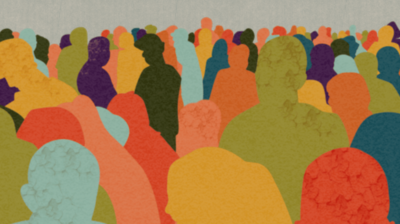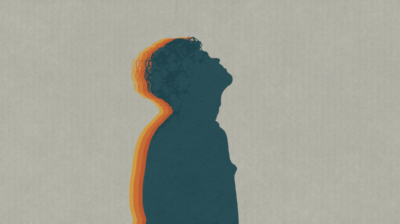How to improve your body image
Learn how to improve your body image with practical tips.

Having a positive body image is an important part of your overall sense of emotional and mental well-being. You may be uncertain about what it means to have a positive body image, and why it’s important. Here, you will find information on what you can do to improve your body image.
In this article, you will information that covers the following aspects of body image:
What is body image?
Understanding the relationship between eating disorders and body image
What can I do if I have a negative body image?
What is body image?
Body image is how you see, think, and feel about your body. It’s not just about your physical appearance, but also your thoughts and emotions around how your body looks, moves, and functions. Your body image can be influenced by many things, like social media, friends, family, and personal experiences, and it can impact your confidence and mental health.
What is a positive body image?
Having a positive body image can mean different things to different people. In general, people who have a positive body image feel comfortable and confident in their own skin. This does not mean that they never feel insecure about certain aspects of their physical appearance. However, for the most part, they are happy with how their body looks and functions and do not feel compelled to make any significant changes.
For some people, positive body image involves accepting and honouring your body for what it can do, rather than focusing exclusively on how it looks. People with a positive body image tend to have a balanced view of their body, recognising that no one is perfect and that differences in physical appearance can be embraced.
What is a negative body image?
Negative body image, or body dissatisfaction, happens when there’s a gap between the “ideal body” or body you want and the body you see yourself as having. This can lead to feelings of discomfort or unhappiness with your physical appearance, which can in turn affect your overall emotional and psychological wellbeing. Although having a negative body image can feel overwhelming and difficult, there are strategies for improving your body image. To learn more, skip ahead to the section on what to do if you have a negative body image.
The relationship between eating disorders and body image
Research shows that having a negative view of your body is linked to increased mental health challenges, such as anxiety and depression, as well as a higher risk of developing eating disorders. When you are dissatisfied with your body for any reason, you may be more likely to engage in harmful eating behaviours, like restricting food intake, binge eating, purging, or over-exercising.
While a negative body image is a significant risk factor for disordered eating or an eating disorder, it is not the only one. To learn more about the various complex factors that can contribute to the development of an eating disorder, read our article on eating disorders.
What can I do if I have a negative body image?
Use social media mindfully
To improve your relationship with your body, you can try to use social media in a mindful way. You can do this by:
- Being selective about the content you follow
- Paying attention to your thoughts and feelings in response to the content you look at
Being selective about online content
Think about following accounts that promote body positivity and diversity, while unfollowing influencers or individuals who promote unrealistic body image pressures. Online algorithms mean that the more you engage with a certain type of harmful content, the more likely you are to be exposed to similar types of content. To prevent this cycle, you might choose to avoid accounts where the primary focus is on bodies and enhancing physical appearance. It can help to curate an online environment that is supportive of your mental health rather than contributing to you feeling bad about yourself.
Paying attention to the impact of the content you consume
Beginning to recognise patterns in your emotional reactions can help you understand how certain messages impact your view of your body and how you relate to yourself. By identifying what makes you feel good or bad about your body, you can make more conscious choices about the messages you accept or reject. This approach can help support a healthier, more positive body image and empower you to engage with social media in a way that uplifts rather than undermines your self-esteem.
Challenge unhelpful social comparisons
To improve your body image, it’s important to challenge unhelpful social comparisons. Instead of trying to eliminate comparisons entirely, it can help to reflect on the types of comparisons you make regularly.
Ask yourself if the social comparisons you make are helping or harming your self-esteem. Try to use social comparisons in constructive ways, such as improving your skills, learning from others, or identifying your own positive traits. Avoid comparisons that leave you feeling inferior or less worthy than others, and remember that no one has the ideal body or life. By reframing your approach, you can use social comparison to support your self-worth rather than undermine it.
Embrace your differences
No two people are the same. When you accept and celebrate your differences, you can improve self-acceptance and self-esteem. Celebrating your individuality can help you shift your focus away from societal standards of beauty and toward appreciating your own unique qualities. By valuing what sets you apart, you can begin to build a more compassionate relationship with yourself, a sense of belonging and confidence in who you are. Embracing your differences not only contributes to a positive body image but also promotes a culture of acceptance and appreciation for all body types.
Build supportive relationships
Building supportive relationships can help with nurturing a positive view of yourself and your body. Surrounding yourself with people who encourage you to embrace your true self—rather than conforming to unrealistic cultural standards—can significantly improve your self-esteem and help you feel more at ease in your own skin. These relationships provide a safe space where you can share your feelings and experiences without fear of judgement, promoting a sense of belonging and acceptance.
Building supportive relationships may also involve challenging old messaging received from family members or other people in your life. It can be helpful to recognise that the people close to you may have internalised harmful messages about their bodies from their own families and social cultures. By challenging these self-demeaning messages, you are working to create a more supportive environment not just for yourself but for others. Showing compassion towards yourself and others can be a powerful first step in breaking down these harmful beliefs, allowing you to build healthier, more uplifting relationships.
Practise gratitude
Practising gratitude for your body can help improve your body image by shifting your focus from physical appearance to what your body allows you to feel, think and do. Sometimes, you might become so preoccupied with how you look that you overlook how your body can move and carry you through your daily activities. By regularly acknowledging and appreciating these aspects of your physical self, you can help build a more positive relationship with your body.
Taking time each day to reflect on what your body allows you to experience—such as feeling the warmth of the sun, enjoying the taste of your favourite foods, or connecting with loved ones—can be a reminder of your body’s worth beyond physical appearance. This shift in perspective can remind you that your value extends far beyond how you look.
Reach out for support
Reaching out for support can be a vital step when struggling with negative views of yourself and your body. Sharing your feelings with trusted friends or family members can provide comfort and help you realise that you’re not alone in your struggles. Our loved ones can offer understanding, encouragement, and perspective, which can help challenge harmful thoughts and feelings.
Not everyone receives the same quality and quantity of emotional support from friends and family. If you want to open up to someone, seeking professional support from a psychotherapist or counsellor can be beneficial. Remember, asking for help is a sign of strength, and building a support network can make a significant difference in your journey towards self-acceptance and a more positive body image.
For more information on improving body image, visit Bodywhys.
Read more about the different factors that can affect your body image.
Feeling overwhelmed and want to talk to someone?
- Get anonymous support 24/7 with our text message support service
- Connect with a trained volunteer who will listen to you, and help you to move forward feeling better
- Whatsapp us now or free-text SPUNOUT to 50808 to begin.
- Find out more about our text message support service
If you are a customer of the 48 or An Post network or cannot get through using the ‘50808’ short code please text HELLO to 086 1800 280 (standard message rates may apply). Some smaller networks do not support short codes like ‘50808’.






